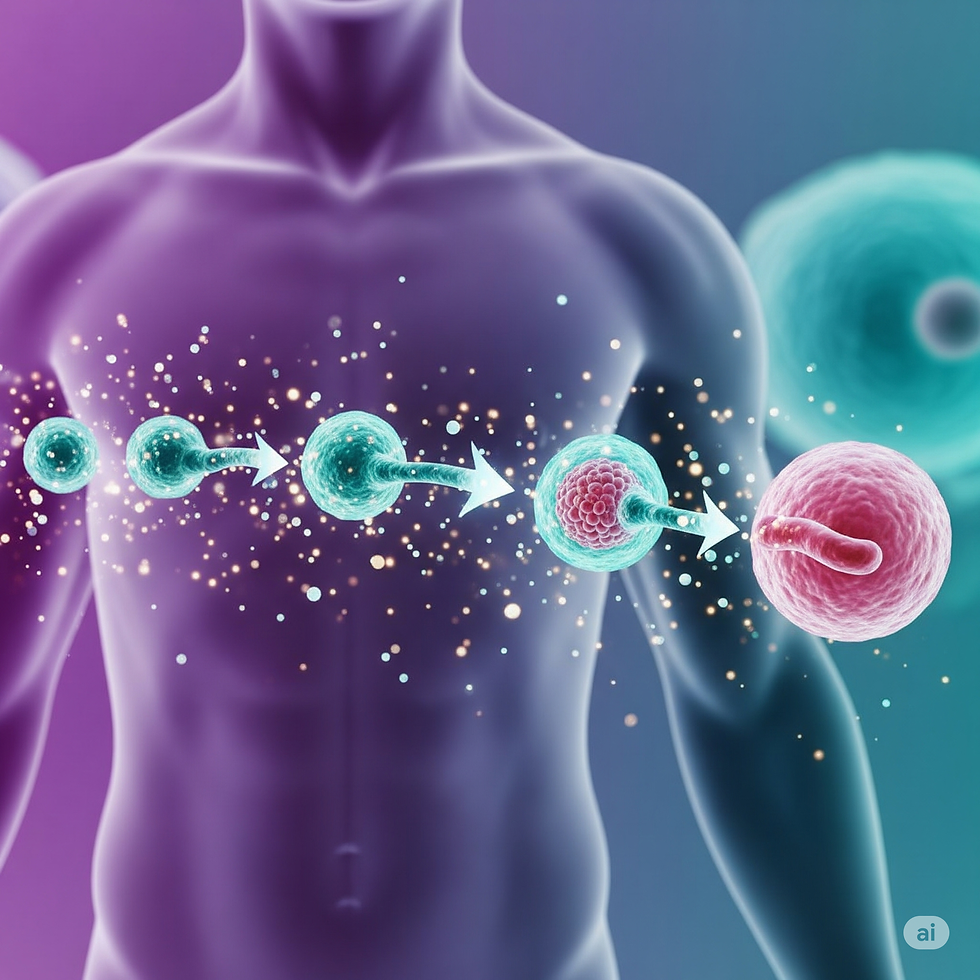Breaking Boundaries in Diabetes Care Through Innovative Stem Cell Treatments
- Pharm. Onyehalu Jennifer

- Jul 5, 2025
- 3 min read
Updated: Jul 6, 2025
In our previous article titled "Stem Cells and Diabetes: How Science Is Shaping the Future of Treatment", we explored how stem cell research is paving the way for future diabetes treatments. Today, we shift from theory to reality. Around the world, patients are already benefiting from groundbreaking therapies that are restoring their ability to produce insulin naturally.
These reports are more than scientific milestones. They offer real hope to millions of people who have struggled for years with insulin injections, unpredictable blood sugar levels, and the daily stress of diabetes management.
Beta Cell Replacement Therapy
Scientists can now grow beta cells from stem cells in the lab and transplant them into patients. These new cells can function like healthy pancreatic beta cells, producing insulin in response to blood sugar levels. A striking example is the case of a Canadian woman with Type 1 diabetes who no longer requires insulin injections after receiving a stem cell implant in her liver.

The Stem Cell Breakthrough
Recent reports have confirmed remarkable cases of individuals with Type 1 diabetes becoming insulin-free after receiving transplants of insulin-producing cells generated from stem cells. In a significant case, a 25-year-old woman received insulin-producing cells made from her own reprogrammed stem cells. Less than three months after the procedure, she began producing insulin on her own and has remained insulin-free for over a year.
This advancement is a major milestone. The process did not rely on organ donors. The stem cells were returned to a pluripotent state, meaning they could develop into any type of cell, including the insulin-producing beta cells that the body needs.
New Methods and Clinical Trials
In a groundbreaking case, the transplanted cells were placed in the abdominal muscles rather than the liver. This method allowed doctors to monitor the transplant using imaging technology and even remove the cells if needed. The patient now experiences stable blood sugar levels most of the time, with no dangerous highs or lows.
A similar case occurred in Shanghai, where a man with Type 2 diabetes became insulin-independent after receiving islet-like cells derived from his own stem cells.
Clinical trials are expanding worldwide.
The VX-880 Clinical Trial by Vertex Pharmaceuticals has shown insulin production restoration in several people using stem cells derived from donated embryonic cells.
A Brazilian trial involving adults with Type 1 diabetes found that many remained insulin-free for several years, with one patient going without insulin for up to eight years.
Researchers in Japan and China are testing encapsulated islet cell sheets and new transplant locations to reduce the need for immune-suppressing medications.
Encapsulation Technology
To protect transplanted stem cells from the immune system, researchers are developing small protective devices that house the cells. These capsules allow insulin and glucose to pass through while blocking immune cells. This reduces the need for immune-suppressing drugs.

Challenges to Overcome
While the potential is enormous, there are still important challenges to address. Researchers must ensure that transplanted cells are safe and do not cause tumors. More clinical trials are needed to test long-term results. There are also questions around cost, availability, and the ethical concerns tied to certain types of stem cells, particularly those derived from embryos.
Looking Ahead
Stem cell technology is offering more than just hope. It is providing a real path toward transforming diabetes care. With continued research, we may see a future where people living with diabetes no longer need daily injections or constant glucose monitoring.
This is not just a new treatment. It is the possibility of healing from within, using the body’s own biology.
Final Thoughts
We are witnessing a medical revolution. Stem cell innovation is changing how we understand and treat chronic diseases like diabetes. As science advances, the dream of reversing or curing diabetes is coming closer to reality.
Stay informed. The future of diabetes care is being shaped today, one cell at a time.









Comments